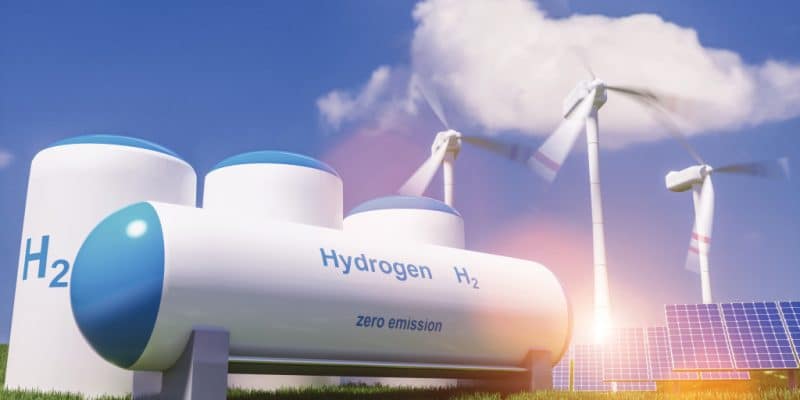The oil group ENI has just signed an agreement with the Egyptian authorities for the production and marketing of hydrogen produced from renewable energy sources. The agreement is part of the Italian energy group's strategy to diversify its activities.
The rush towards green hydrogen continues in Egypt. The ENI group, which specialises in hydrocarbons, is launching itself into this sector of the future with the signing of an agreement with the public companies Egyptian Electricity Holding Company (EEHC) and Egyptian Natural Gas Holding Company (Egas). The agreement covers the study of joint projects to produce green hydrogen, using electricity generated from renewable sources, and blue hydrogen, by storing CO2 in depleted natural gas fields.
Egypt is one of the pioneers on the African continent in terms of renewable energy production, particularly solar and wind power, which already account for 11% of its electricity mix (55,000 MW in 2020, editor’s note), i.e. an installed capacity of 6,000 MW. Cairo is counting on 20% of electricity being produced from renewable sources by 2022. This objective will be quickly achieved thanks to the projects underway in this North African country, notably in the Gulf of Suez for wind power and in Kom Ombo or Zaafarana for solar power.
Three partnerships with private players
Green hydrogen will be an immeasurable means of storing electricity produced from new renewable energy plants, and above all a means for the Egyptian government to export its surpluses to the international market. ENI sees the partnership with the Egyptian authorities as part of its objective to reduce its CO2 emissions. This is a global trend among oil companies. Some, like the French company Total, have even created subsidiaries dedicated to the production of renewable energy. It is also a way of diversifying in a world where the production and use of fossil fuels are increasingly criticised for their environmental impact.
Read also- EGYPT: Cairo to invest $4bn in green hydrogen production
For the Egyptian government, the production of green hydrogen with ENI will contribute to its objective of diversifying its sources of electricity production. Cairo has signed partnerships with several companies for the study and production of green hydrogen. This is the case with the German energy company Siemens and the Belgian Dredging, Environmental and Marine Engineering NV (Deme Group). Egypt expects to invest 4 billion dollars in green hydrogen over the next three years.
Jean Marie Takouleu







